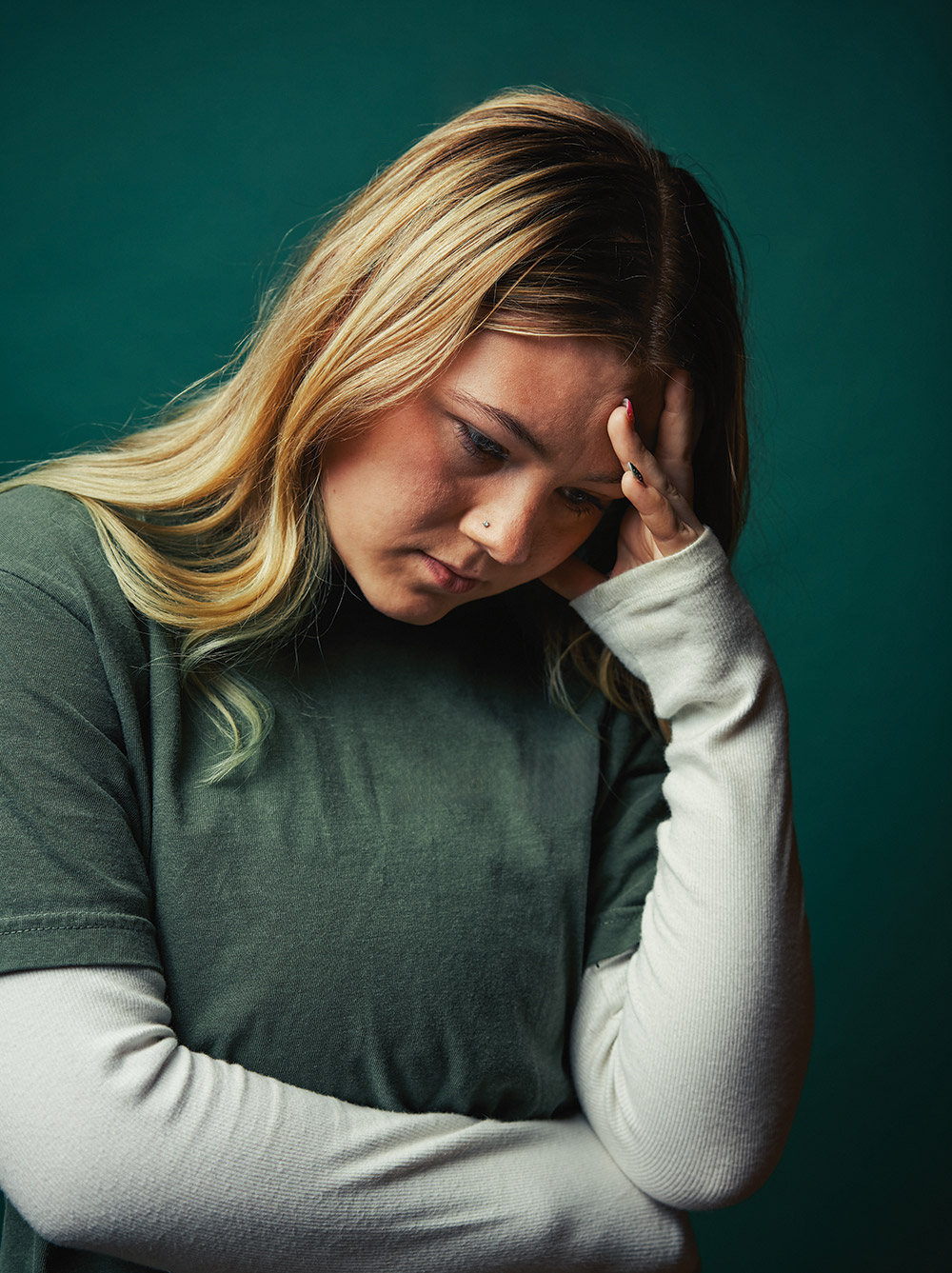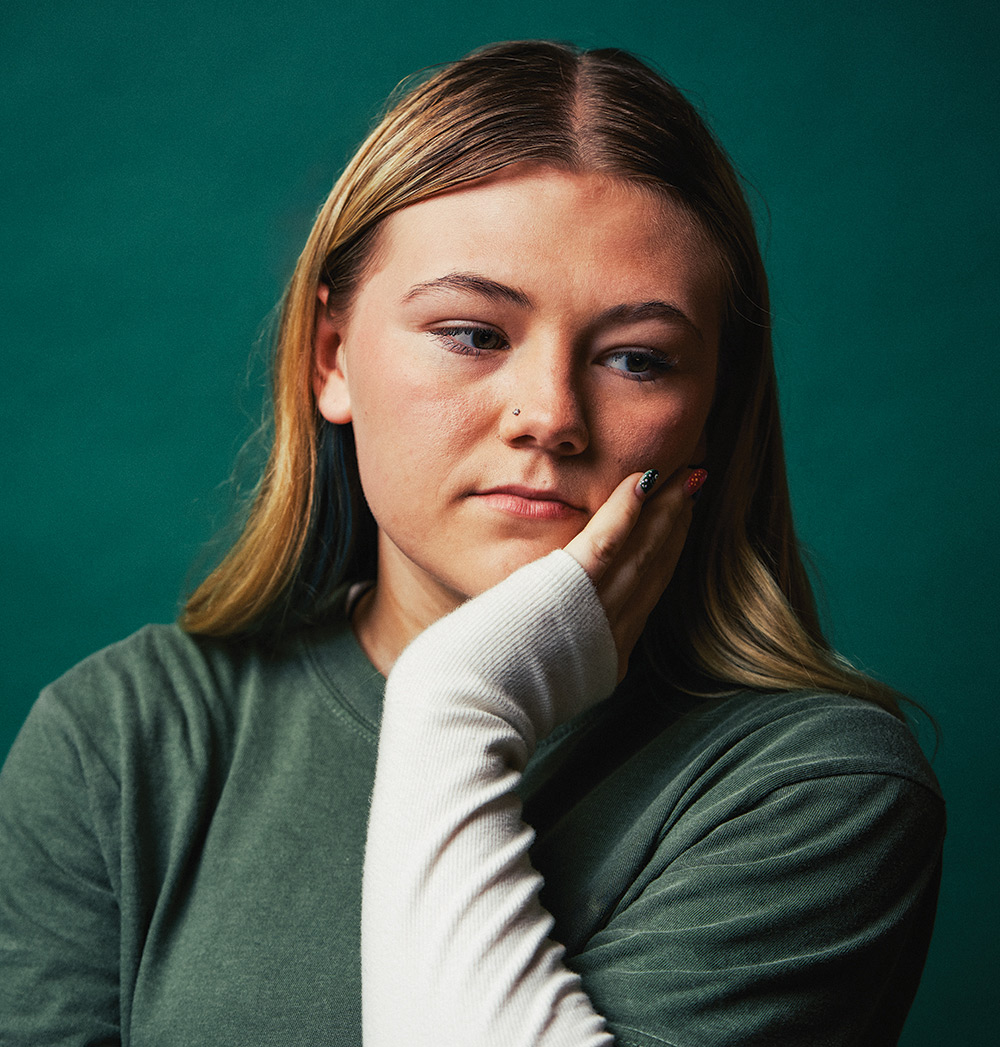At age seven, Sophie and her family moved to a new town, and life started to feel different. Between the ages of eight and ten, Sophie began to struggle with her identity and sense of self. Growing up with parents who both lived with mental illness made life even more challenging. Some of what her parents experienced had a lasting impact on her.
Sophie’s first thoughts of self-harm started when she was nine. She recalls one early incident where, in an effort to express her feelings, she posted a video on TikTok. Her parents asked her to take it down, not understanding the depth of what was happening. Sophie didn’t yet have the language to articulate what she was feeling — she just knew she didn’t want to be here anymore and often daydreamed about disappearing.

At 12, things got worse. Sophie actually began self-harming. When her parents found out, they took it more seriously and found her a therapist. That same year, Sophie saw a psychiatrist at Ontario Shores who diagnosed her with Major Depressive Disorder. She began Cognitive Behavioural Therapy (CBT) at Ontario Shores, which was quickly transitioned to Dialectical Behaviour Therapy (DBT) to better support her needs.
Despite therapy, Sophie continued to struggle. In Grade 7, at just 12 years old, she made her first suicide attempt. In Grade 8, she was brought to the hospital for the first time for suicidal ideation, and by Grade 9, she experienced her first inpatient hospitalization following another attempt.
From ages 14 to 16, Sophie was in and out of hospitals. She often ran away from home, snuck out, and sometimes had the police called on her. She experienced severe anxiety and panic attacks, and many of those hospital stays left her feeling worse. Home was unstable; school was overwhelming; and her psychiatrist wasn’t helping. Tension at home with her parents deepened, which made Sophie feel more and more like a burden.
Eventually, her psychiatrist referred her to Ontario Shores. Sophie joined the Adolescent Day Treatment Program at Ontario Shores as an outpatient, where she continued receiving therapy and psychiatric support. Despite receiving CBT therapy, she continued to struggle and needed more consistent care.

When that program came to an end, Sophie still needed more help. Finally admitted to Ontario Shores’ Adolescent Inpatient Unit, that’s when things began to shift for her. Determined to prove to herself that she could recover, she began to find hope again. Ontario Shores provided structure, consistency, and the opportunity to see that healing was possible without self-harm. Though it was difficult at first, Sophie began to believe in her ability to cope.
She was admitted on May 16, 2024, and discharged on July 29. Upon leaving, Sophie went home equipped with new coping tools and supports, connected with a community worker and outpatient therapy support. She did experience a relapse but quickly reminded herself why she wanted to keep going. Since then, she has been self-harm free for over a year.
Today, Sophie continues therapy at Ontario Shores, participating in DBT and one-on-one sessions. Her parents are actively involved — attending group therapy and meeting with Sophie’s social worker. Where there was once misunderstanding and conflict, there is now compassion and open communication. Home, once a major trigger filled with tension and fighting, has become a calmer and safer environment.
Over the years, Sophie has received several diagnoses, including Generalized Anxiety Disorder, Major Depressive Disorder, and Adjustment Disorder. One psychiatrist once suggested Borderline Personality Disorder, but this was later revised to “Type B traits.” The stigma around BPD deeply affected Sophie, especially being told that “people with BPD can’t recover.” She now sees how harmful that mindset is — how it makes people believe they’re beyond help, which couldn’t be further from the truth.
Sophie began taking medication at age 12 and tried several different kinds over the years. She is currently medication-free and doing well, supported by consistent therapy and strong coping skills. Through Ontario Shores, Sophie has learned that she doesn’t have to live the way she used to.
Sophie is now in her final year of high school and plans to study nursing, with a focus on mental health care. She plays rugby, which helps her release energy, and uses writing and journaling as positive coping tactics. She’s also involved with youth advocacy and mental health awareness at Ontario Shores, helping drive change within the system that supported her.
Recovery, Sophie says, brings its own challenges. It isn’t always straightforward. While she used to think recovery meant everything would be fine, she now realizes it’s about learning to cope with difficult moments rather than avoiding them.
For the first time, Sophie truly feels in control of her life.
Help change the face of mental health.
Support mental health by donating to Ontario Shores to ensure people who are struggling can access the life-changing care they urgently need.













